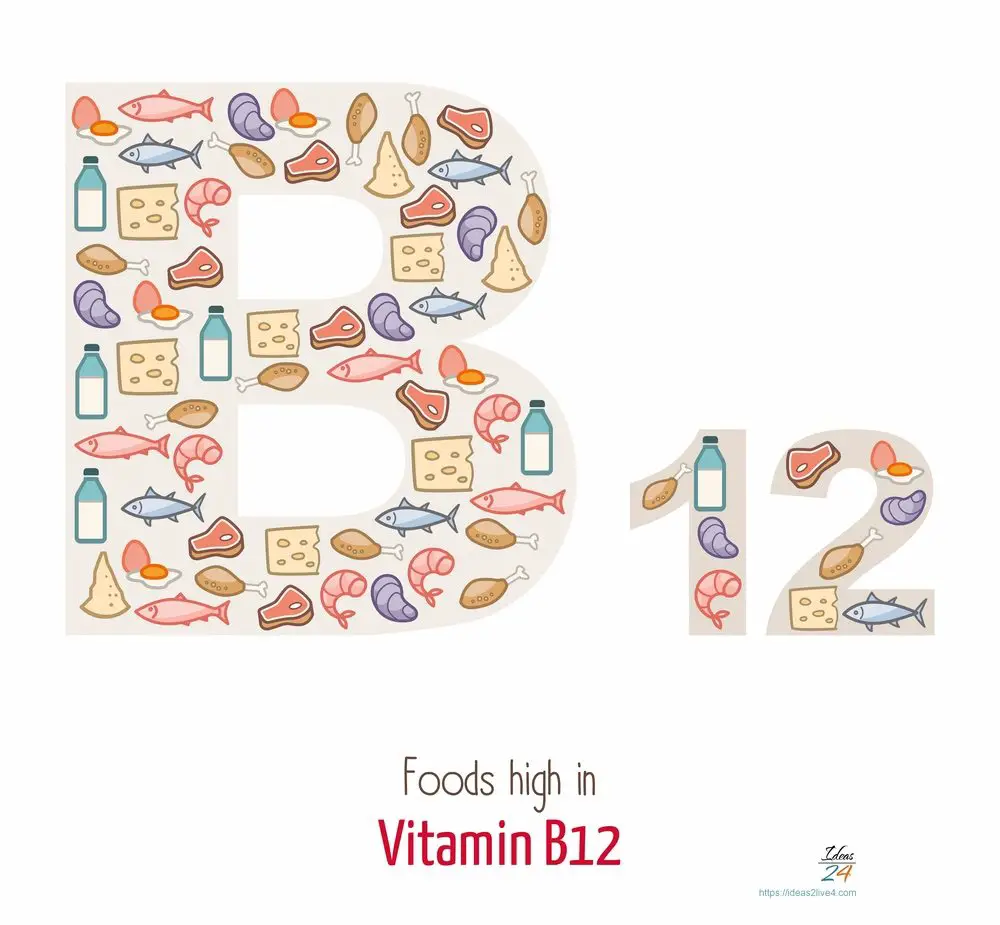Vitamin B12, otherwise known as cobalamin (cobalamine), has the most complicated structural makeup among the B-complex group. It is essential for neurological health, DNA synthesis, and formation of red blood cells. It helps burn carbohydrates and fats to convert them to energy.
The human body does not synthesize vitamin B12 on its own, thus we get it from other sources such as from the food that we eat.
Contents
The Basics of Vitamin B12
Vitamin B12 is a co-factor in myelin production. Myelin forms the myelin sheath, a protective covering for our nerves, which allows for a smoother nerve impulse transmission. The lack of myelin sheath damages the cranial, peripheral, and spinal nerves resulting in neurological problems.

One of the most important functions of Vitamin B12 is its role in forming red blood cells (RBC). These cells are responsible for carrying oxygen from the lungs to the different parts of the body. Without this vitamin, RBCs are unable to properly multiply. The lack of vitamin B12 inside the body will result in a drop in RBC production. This, in turn, causes diminished oxygen supply.

Why You Need More Cobalamin
Our body can only store vitamin B12 for up to 4 years. And because it is a water-soluble micronutrient, it dissolves easily and is readily flushed out of the body.
Vitamin B12 deficiency usually happens in the elderly when absorption becomes difficult. It can also occur in people who underwent gastric surgery. Alcoholism and prolonged use of antacids are also factors that contribute to decreased vitamin B12 levels in the body.
Furthermore, certain medical conditions like pernicious anemia, Crohn’s disease, atrophic gastritis, celiac disease, Lupus, and Grave’s disease may cause vitamin B12 deficiency, too.
The most common sources of vitamin B12 are animal products – eggs, dairy, fish, and meat. Because of this, vegans are also susceptible to vitamin B12 deficiency.
Cobalamin deficiency manifests in a number of symptoms: constipation, weakness, weight loss, loss of appetite, lightheadedness, pale skin, depression, memory loss numbness of the hands and feet, irritation, tremors, and loss of balance.
Taking Too Much Vitamin B12
Vitamin B12 is generally safe to use. There are no reports of adverse or toxic effects of vitamin B12 in healthy people, even in large doses.
Sources of Vitamin B12
Excellent sources of vitamin B12 are as follows:
- Clams
- Beef liver
- Rainbow trout
- Salmon
- Tuna fish
- Cheeseburger
- Haddock
- Low-fat milk
- Yoghurt
- Swiss Cheese
- Ham
- Egg
- Chicken breast
You can download and print a large format version of our Vitamin B12 graphic here…
This is one of a series of posts on vitamins starting with vitamin A here…





